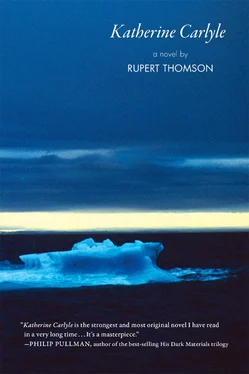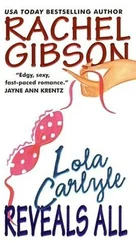There isn’t a hotel in sight so I ask him to keep going. A car behind us honks then overtakes. I tell him to turn right. I’m just guessing but as we round a corner I see a two-story building painted a garish blue. A small sign says HOTEL.
“Stop here,” I say.
Once he has pulled over and switched off the meter I hand him the fare. He turns in his seat and looks straight at me for the first time.
“How old are you?” he asks.
I tell him I’m twenty, though actually I’m still nineteen.
He looks away, then murmurs something.
“I’m sorry?” I say. “I didn’t understand.”
As he passes me my change I lean forwards but he keeps his eyes fixed on the windscreen. There’s a thin red line near his ear. He must have cut himself shaving.
I try again. “What did you say?”
He adjusts his glasses, then gets out, opens the boot, and carries my suitcase to the curb. By the time I’m standing on the pavement he’s already back behind the wheel. His indicator flashes and he drives away.
The sky is the color of an oyster and has a clamminess as well, a glossy, slightly swollen quality. I bring my eyes back down. Opposite the hotel is a squat purple building with no windows. Next to the purple building is a pair of wrought-iron gates painted gold and then a green wall with a sticking-out sign that says AUTO-GLASEREI. Beyond that is a railway bridge. The gutters are clogged with wet leaves. It’s quiet, just the murmur of traffic and the distant scream of logs or metal being cut.
I move towards the hotel entrance. The lobby is the size of a doctor’s waiting room with a prefab look to it as though, like a film set, it’s only temporary and could be dismantled at a moment’s notice. The woman on reception has a sallow unlined face, her eyebrows plucked into thin black arcs. I can’t tell where she’s from. Iran perhaps. Or Lebanon. A room with a shower will cost me fifty euros. If I share a bathroom it’s only forty. Her voice is casual, musical, and she makes no attempt to sell the place.
I ask if I can see a forty-euro room. She hands me a key attached to an oblong piece of wood by a metal ring. The room is on the ground floor at the end of a narrow passageway. Between the two beds is a night table with an ashtray and a lamp. I move to the window and part the net curtains. On the far side of the alley that runs past the back of the hotel is a streetlight and a wall of blackened bricks. The cool, faintly alcoholic air of Berlin drifts through a crack in the window frame. The smells are all unnatural — creosote, petrol, methylated spirits. I put my face close to the glass. Out there, somewhere, is Klaus Frings, with his penthouse apartment and his wounded heart …
I return to reception.
“Well?” the woman says.
“It’s perfect.”
Her eyebrows lift but she says nothing.
That night, after eating in a pizzeria on Potsdamerstrasse, I lie awake for hours. Though the curtains are closed, the room floods with yellow light from the streetlamp outside the window. When I think of Klaus Frings I see a man who is a few years older than me and only an inch or two taller. I suppose I’m being influenced by the sound of his name. Those two pert monosyllables, which seem to invite a limerick, suggest someone with a brittle distracted air. He might even shiver a little, but like a greyhound this would be a sign of good breeding, not nervousness or feeling cold. His clothes seem anachronistic, as if he belongs to another period in history. A figured waistcoat, a cane with a carved head. He doesn’t resemble anyone I know. He’s like a fictional character, a person I’ve made up. As I turn onto my side rhymes begin to pop into my head: drinks, winks, stinks, kinks, sphynx . The limerick’s writing itself.
In the middle of the night I’m woken by a tapping on the window.
“Was gibt’s?” I call out. What is it?
Nobody answers. My room is no longer yellow. The streetlight must have been switched off.
Later I hear bedsprings creaking overhead. A door opens, then closes. A toilet flushes. Someone laughs and then the creaking starts again.
In the morning, after breakfast, I approach the woman on reception and ask who occupies the room above mine. She says she can’t give out that kind of information.
I nod. “It’s important to be —” But I can’t remember the German for discreet , so I say, “It’s important not to tell everything.”
She stares at me.
“No, really,” I say. “I mean it.”
I walk round to the back of the hotel. The bulb in the streetlamp outside my room is broken, and glass fragments glitter on the cobbles. The window above mine is closed. Hot-pink blinds are lowered almost to the sill.
/
My first full day disappoints me with sunlight and clear skies, but at least I know it can’t go on. Berlin is one of the coldest cities in Europe. Last winter was severe, with heavy snowfalls as late as March. The papers talked of “Arctic air systems” and temperatures that were “Siberian.” Out on the street there’s something brisk and combative in people’s gestures and expressions, even in the language they use. How lazy Rome seems by comparison! A city of lotus-eaters.
It takes forty minutes to reach Walter-Benjamin-Platz. Open at both ends, with tall utilitarian arcades running along its northern and southern sides and a paved area in between, the square feels like a civic monument, built to commemorate a loss or a catastrophe. Since I don’t have Klaus Frings’s exact address I start at the southeast corner of the square and move slowly westwards, checking the nameplates on every door. When I reach Leibnitzstrasse without having found him I cross to the northwest corner and work my way east. Halfway along I begin to panic. What if he has moved? Approaching the penultimate door, I scan the names on the upright rectangle of tarnished metal: Nowaczyk, Lutz König, Dr. Popp, Hauff-Buschmann, Wimpary, Frau C Alvarez, Frings —
Frings!
Once again I admire the clipped, almost porcelain ring of that single, simple monosyllable. I touch the buzzer next to his name. Round and satisfyingly concave, it seems to have been constructed with my fingertip in mind. I step back. Now what? Should I make contact with him? If so, how? I feel ahead of myself, out of sync, like a detective trying to solve a crime that has yet to be committed. The name Klaus Frings is all I have, but what is it exactly that I want? I need to think.
I turn away.
Built into an arch in the corner of nearby Savignyplatz is a café with dark wood tables and red chairs. As I walk in, the radio is playing a Dinah Washington song. My father has always had a thing about Dinah Washington. He used to sing along sometimes when we were in the car. “What a Difference a Day Makes” or “September in the Rain.” His voice wasn’t bad, but my mother would grin at me and shake her head despairingly, blond hair covering one eye. An S-Bahn train thunders overhead, blotting out the music. The whole café shudders, but the man behind the bar doesn’t react. His thinning hair is the color of mahogany. I order a hot chocolate, then sit by the window.
When he brings my drink I say, “Mille grazie.”
“You’re Italian?”
“Sorry. I forgot where I was.”
I’m English, I tell him, though I’ve lived in Rome since I was nine. He’s from the north, he says. A small town near Brescia. But he has been in Berlin for fifteen years. The door opens and a woman enters. He excuses himself.
I look around. Standing at the counter is a man in his fifties, dressed in a black suit and a black polo-neck. Another, younger man is sitting at a table, silver headphones over his ears. A third man is reading a magazine, a bag of cat litter at his feet. Is one of them Klaus Frings? It’s possible. Anything’s possible. Another train rumbles past, the reflected carriages flowing right to left across the upstairs windows of the building opposite and crumpling as they cross the glass. I sit there for an hour. When I finally go up to the bar to pay, the owner says he hopes to see me again before I fly back to Italy. I nod and smile and say I hope so too.
Читать дальше












